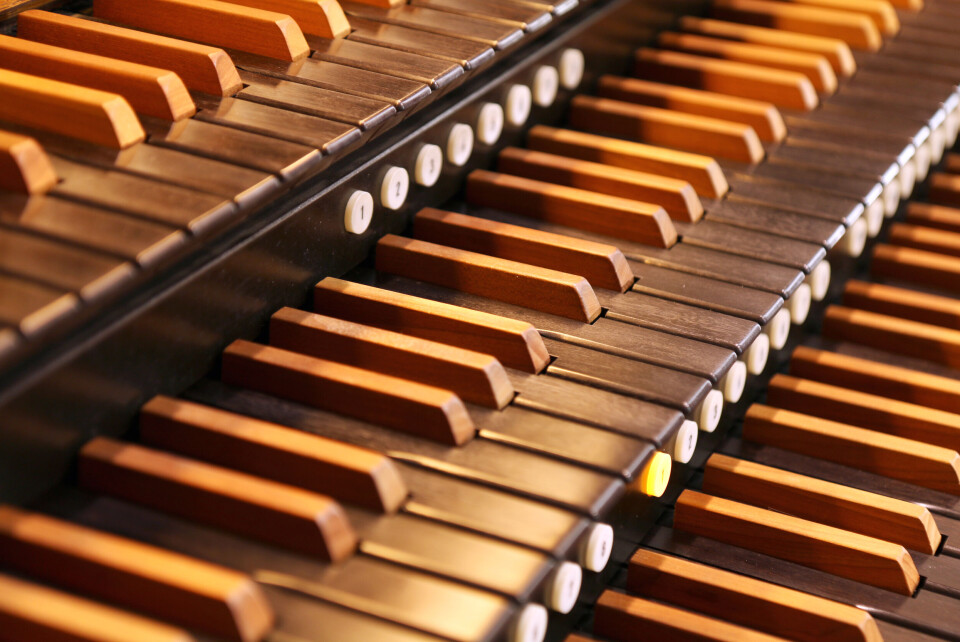-
How joining a choir in rural France helped me build a new life after retirement
Connexion reader Abigail Gammie explains how singing offered a fun way to make friends – and learn the language
-
Five iconic French dishes from different regions
Explore the rich culinary heritage of France with these traditional dishes, from cassoulet in Occitanie to cari poule in La Réunion, showcasing the country's geographic and cultural diversity
-
Florent Pagny returns with new album and tour after cancer remission
Singer and The Voice star is back with 22nd album 'Grandeur Nature', following his lung cancer remission and vocal recovery
French choral revival hits all the right notes
The coronation of King Charles III highlighted the rich choral music tradition in the UK

The coronation of King Charles III showcased the UK’s strong tradition of choral music. In France the Revolution stopped church choir schools but the country is now catching up.
Whatever your feelings about the coronation of King Charles III, it was hard not to be impressed by the music.
Spanning the centuries from William Byrd and Thomas Weelkes to 12 new pieces
commissioned by the king, it reflected a vibrant musical tradition deeply embedded in British culture: of church choirs and choir schools, of organists and choral societies, and large-scale performances of oratorio in all corners of the kingdom.
“I thought it was fantastic,” says Mark Opstad, founder and director of the French choir school Maîtrise de Toulouse.
“I loved the diversity of repertoire, and of performers too.”
France’s musical traditions
Mr Opstad was a chorister at Bristol Cathedral and an organ scholar at Balliol College, Oxford, before moving to France to study the organ at the Caen Conservatoire. Before the Revolution, he says, France had its own flourishing musical tradition associated with the Catholic Church. Maîtrises, or choir schools, used to educate and supply choristers to sing the liturgy.
However, as the Revolution’s ‘Reign of Terror’ saw church property nationalised, priests exiled or killed, and religious orders dissolved, choir schools were disbanded and replaced by state-run conservatoires, which prioritised secular music.
It was in Caen that Mr Opstad first became involved with the revival of French choir schools as assistant to Robert Weddle, who founded the Maîtrise de Caen in 1987.
Since then, the growth of maîtrises has been steady across France, although, bar a few notable exceptions, they are part of local conservatoires and serve no liturgical purpose.
In Toulouse, Mr Opstad’s choristers attend an affiliated school where the timetable accommodates musical practice. They perform approximately 10 concerts a year, as well as touring and recording.
Nurturing a New Generation of Singers and Musicians
Other French maîtrises have been created by Radio France and the Centre du Baroque de Versailles.
At Versailles, the schoolchildren (les pages) join forces with the adult students (les chantres) for weekly concerts at the Royal Chapel. Meanwhile, Lyon’s choir school, Les Petits Chanteurs de Saint-Marc (subsequently renamed Maîtrise Saint-Marc), found fame in 2004 when it recorded choral tracks for the hit film Les Choristes.
Set in 1949, it tells the story of an unemployed music teacher who accepts the job of supervisor at a brutal boarding school for boys and transforms pupils’ lives by forming a choir.
The film was hugely popular both in France and abroad, and Mr Opstad attests that his choir, too, attracts a surprisingly diverse audience: “At Toulouse, not only do the choristers’ parents come, but also their friends. The French enjoy all sorts of music, from Renaissance to contemporary.”
He adds that new works have been commissioned for the choir and musicians are being trained to perform them.
“These youngsters will go on to become a new generation of singers, musicians, directors and composers.
“More and more French musicians are being drawn into the choral tradition,” he says.
Growing Interest: French Choral Music Enjoys Popularity
At a grassroots level, there has also been a revival of choral singing. Dordogne in the
south-west is a case in point, with numerous vocal groups specialising in a range of music, from the Renaissance to gospel, jazz and pop.
While it is rare to find a large choral society that mixes amateurs and professionals, there are a number of sizable projects with orchestras.
The Dordogne village of Tourtoirac is offering a stage de chant chorale featuring Henry Purcell’s King Arthur in July, for example.
Bear in mind that rehearsals for these sorts of events are often considered as musical tuition and so singers can be asked for a financial contribution to take part – €220 in the case of King Arthur.
Puycelsi in Tarn
For those wishing to recreate the Coronation soundtrack, the picturesque village of Puycelsi in Tarn in the south is offering a chance to take part in a themed concert on September 23 for €40. The programme includes Handel’s Zadok the Priest and Hubert Parry’s I Was Glad, as well as Debbie Wiseman’s brand new Alleluia. Expect two days of rehearsals plus the concert, all under the expert direction of Mark Opstad. Contact arc.puycelsi@gmail.com or call 05 63 33 15 84 for reservations / more details.
For King Arthur in Tourtoirac (July 10-13), contact Nadia Bersali at pacte-tourtoirac@orange.fr or call 06 16 85 06 23.
In Burgundy, meanwhile, amateur and professional singers/musicians have recently teamed up to tour with Mozart’s Ascanio in Alba opera, with performances in Prémery (July 9) and Nevers (October 14), in Nièvre. For details contact dan.krajcman@wanadoo.fr.
The Essonne town of Brunoy has been named the most music-al in France, based on the number of specialist shops, venues, and music groups per capita. The data, compiled by geomarketing specialist Smappen in June, puts it ahead of Biarritz and Paris, which rounded out the top three.
Related Articles
King Charles III now set to visit France in September
Charles III coronation: What do the French think of the UK’s new king?
Nine million French viewers for Coronation’s ‘royal fête des voisins’
























